Amelia McCune pets her dog, Banner, outside of her home in Columbia, Mo. on Feb. 13, 2021. (Brennan Haralson/Photographer)
Story by Brennan Haralson, Mia Hollander, Bailey Becker and Emily Hood
As soon as MU sophomore Heather Martinez met Cash in September 2020, she said she knew he was her dog.
“We clicked right away, and he snuggles me all the time,” Martinez said. “We’re best friends.”
As more Columbia residents work from home due to COVID-19, pets have become a source of companionship in an isolated, online world. Cash not only provides Martinez with a fun distraction from her online classes, but also serves as a mental health resource to help with her ADHD, anxiety and depression.
“He helps me cope a lot,” Martinez said. “He is my emotional support animal for sure.”
Click on each image to view it in a larger size.
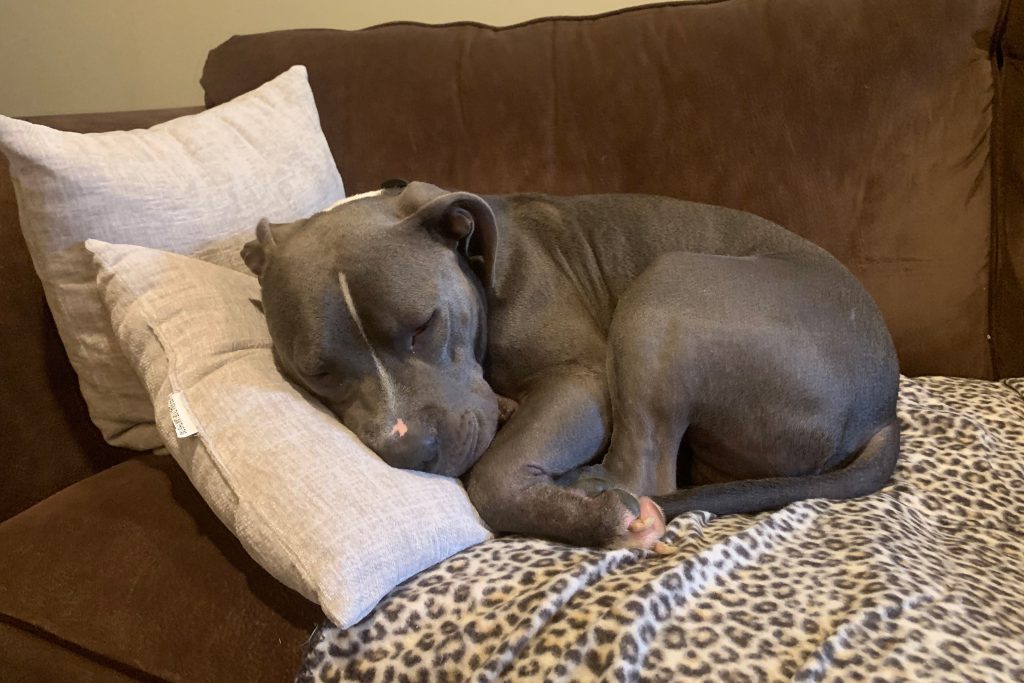
Cash sleeps on Heather Martinez’s couch in Columbia, Mo. on Oct. 8, 2020. (Photo Submitted/Heather Martinez) 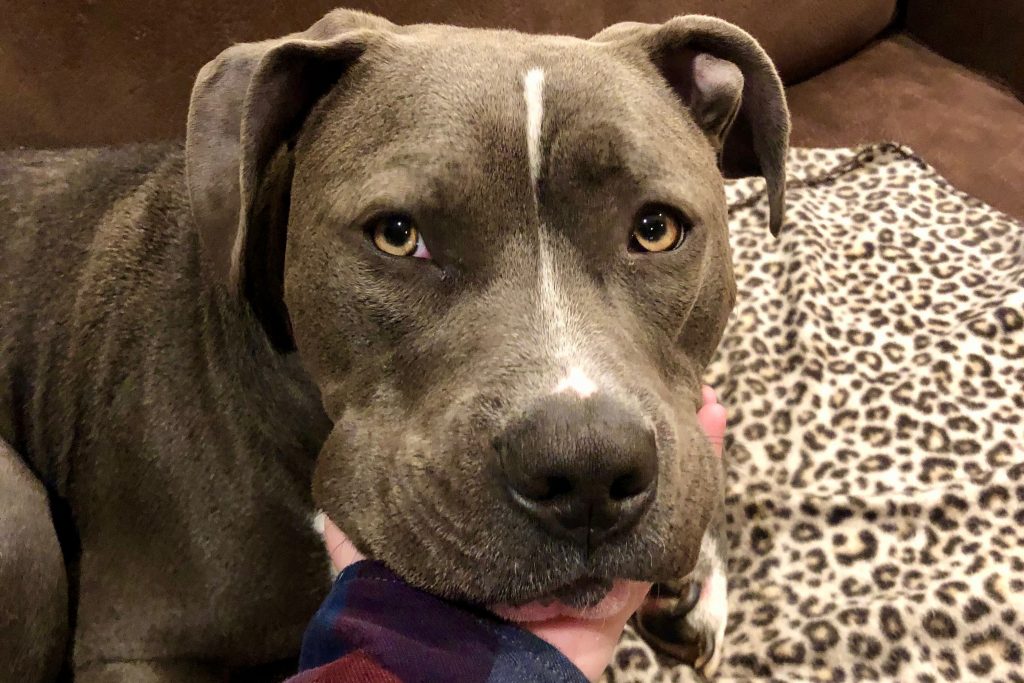
Cash sits on the couch with his owner, Heather Martinez, in Columbia, Mo. on Feb. 1, 2021. (Photo Submitted/Heather Martinez) 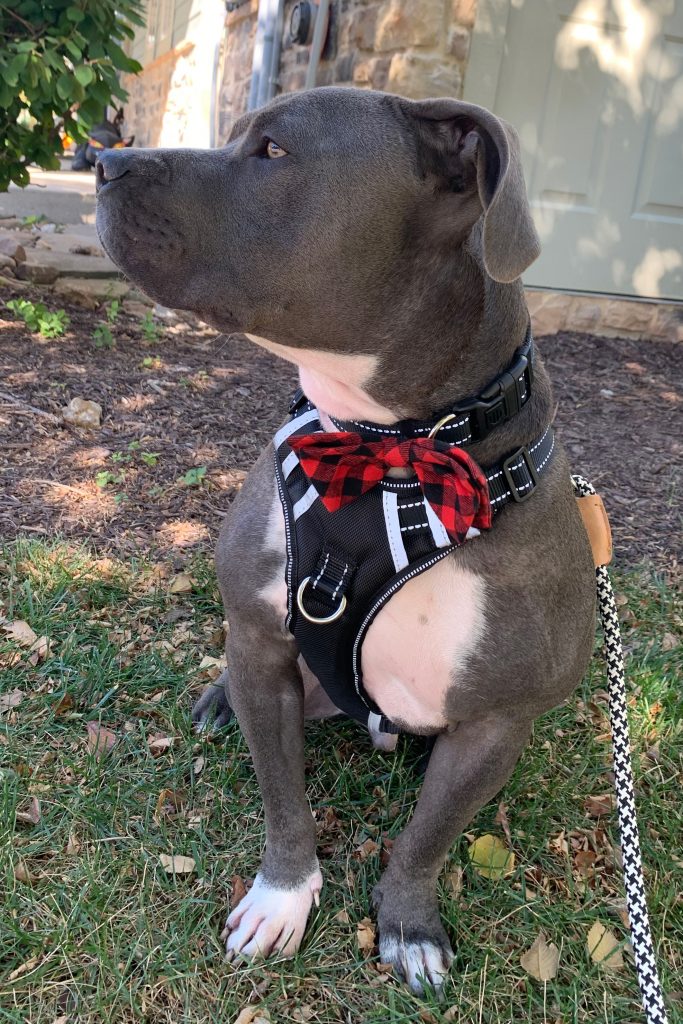
Cash, owned by Heather Martinez, goes for a walk outside his home in Columbia, Mo. on Oct. 15, 2020. (Photo Submitted/Heather Martinez) 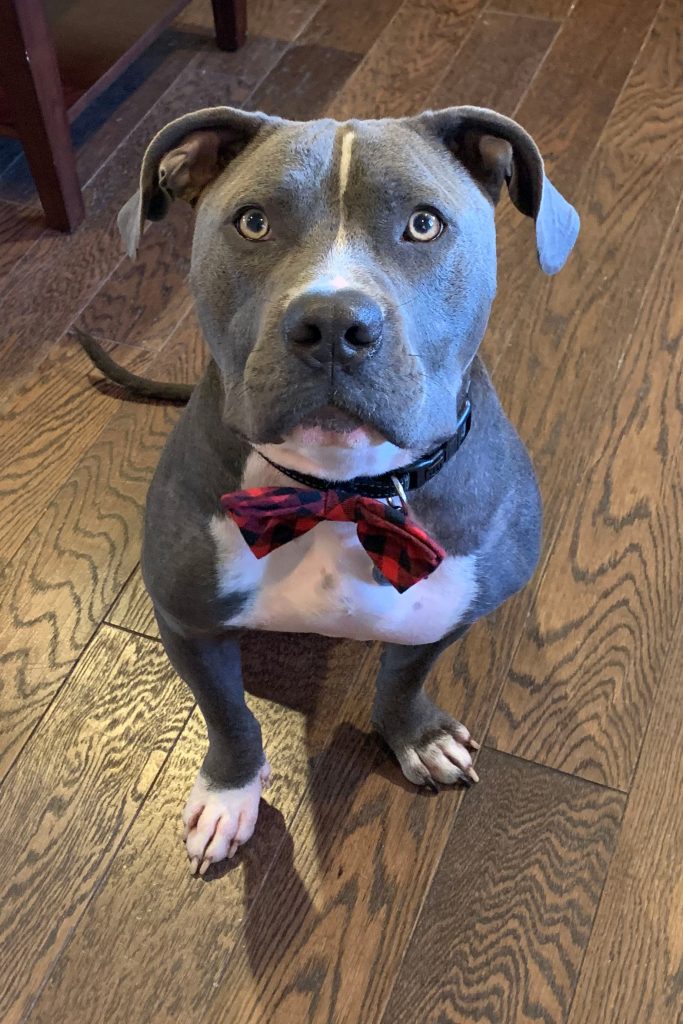
Cash, Heather Martinez’s dog, poses while wearing a bow tie in Columbia, Mo. on Oct. 15, 2020. (Photo Submitted/Heather Martinez)
During isolation, MU students and Columbia residents have been adopting pets in a search for companionship, consequently leaving shelters and veterinarians finding ways to accommodate new owners.
Associate Director of the Central Missouri Humane Society Michelle Casey said that while adoption and return rates for the shelter remained steady throughout 2020, more families became interested in fostering.
“Everyone was looking for a little bit of extra love and something to kind of bring some joy to your day, so I think that really was a big push for people to involve fostering,” Casey said.
Since people were still interested in fostering and the animals still requiring caretakers, the Central Missouri Humane Society had to restructure some of the programs and services they provide. Casey says that along with putting a temporary halt to low cost surgeries, the shelter made some adjustments to their staff in order to ensure their animals could be cared for.
“Our biggest fear was if somebody did get sick and we all had to quarantine, there would be nobody left to take care of the animals,” Casey said.
Pet-Adoption-Rates-Return-to-Pre-Pandemic-Levels-Their employees have been adapting to new schedules so that families like the McCunes can adopt pets during COVID-19. Banner, the McCune family’s new dog, was adopted from the Central Missouri Humane Society in June 2020. Liz McCune, Banner’s owner, said he kept the family in good spirits throughout the pandemic and served as a way to get the family outdoors.
“He’s definitely gotten us out of the house during times when we would have just been isolating inside,” Liz McCune said. “He gets us exercise, but the biggest benefit is just like limitless love.”
Gretchen Carlisle, a research scientist at Research Center for Human-Animal Interaction, says pets like Banner can help support their owners during stressful times like COVID-19.
“It is that feeling of social support for an individual who has a pet, that unconditional love, that ability to have someone to talk to,” Carlisle said. “In a family setting, there’s a lot of research showing how a pet can kind of provide sort of a glue holding the family together. It’s an interest and they can be entertaining.”
While pets can provide a source of entertainment and comfort to families staying at home, training pets for life after COVID-19 can come with new challenges. After the McCune family adopted Banner in June 2020, they noticed he struggled meeting new people. However, traditional resources to help Banner became less available during the pandemic.
“A friend of mine has recommended a dog trainer,” McCune said. “We thought about it. But I’ve been a little reluctant because we’ve been really careful during COVID.”
Socializing dogs can also be difficult, but creative solutions can help owners and dogs become adjusted with new people. When socializing Cash, Martinez turned to neighbors and outdoor solutions to let Cash play and learn to meet other dogs.
“I do still go to the dog park,” Martinez said. “There’s just not as many dogs or people, but I try to get him out there frequently because it is an outdoor environment”
During COVID-19, pet illnesses can create new challenges for pet owners trying to keep themselves and their animals healthy. For pet owner and MU sophomore Olivia Bommelje, these obstacles not only took a toll on her new puppy, Jake, but also on Bommelje and her family.
After Bommelje’s family adopted Jake in June 2020, he quickly developed symptoms of Canine parvovirus and was taken to the hospital to receive care. Due to COVID-19 restrictions, Bommelje and her family were not able to visit their new puppy during his seven-day stay at the hospital. She said her family anxiously awaited one phone call every day to get updates on Jake’s health.
“What killed us was, [we thought], ‘Does he think we’ve just left him for dead?’” Bommelje said. “It’s not like you can tell him, ‘You’re just gonna stay in the hospital and then you can come back to this brand new place that we’ve just taken you to for one week of your little life.’ It’s really hard.”
Click on each image to view it in a larger size.
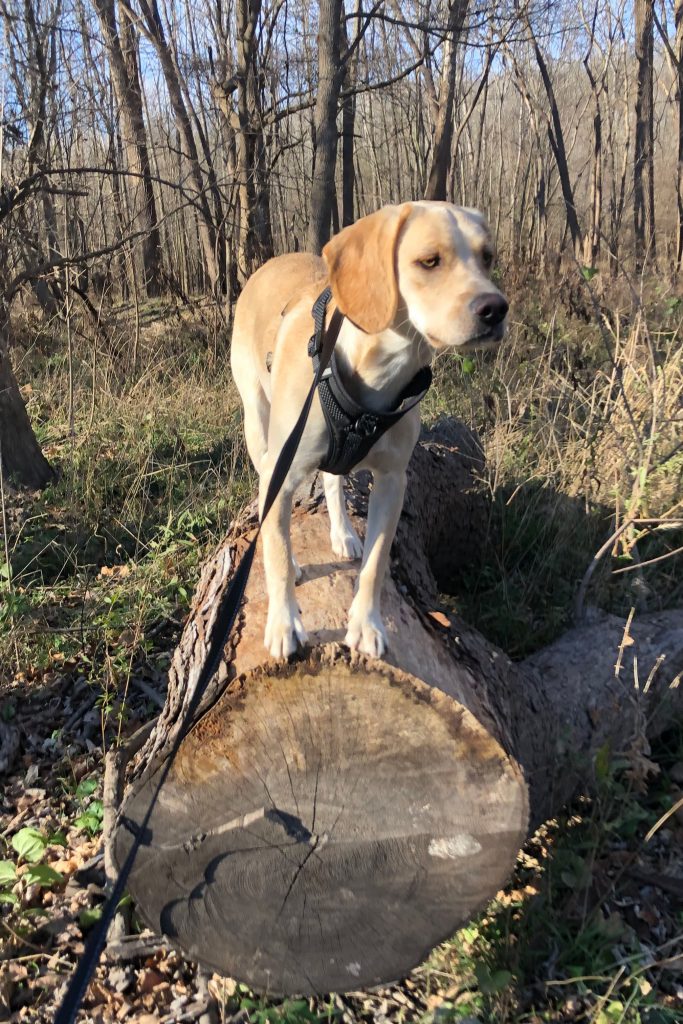
Jake, Olivia Bommelje’s dog, stands on top of a fallen tree in Charleston, Ill. (Photo Submitted/Olivia Bommelje) 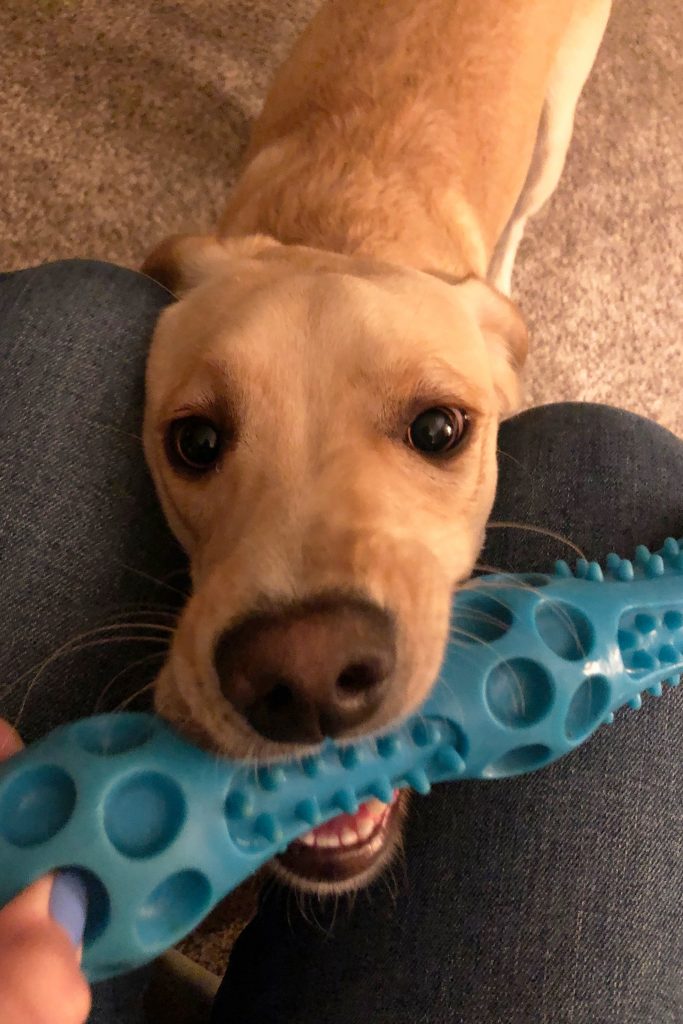
Olivia Bommelje’s dog, Jake, plays with a toy in Charleston, Ill. (Photo Submitted/Olivia Bommelje) 
Jake sleeps with his sister, Athena, at the Bommelje’s family home in Charleston, Ill. (Photo Submitted/Olivia Bommelje)
Veterinarians have made attempts to adjust their clinics to fit the new restrictions, leading their practices to be less personable than they once were.
“A lot of clinics aren’t accepting the owners into the building right now, so the pet care has been a little bit impersonal, which is kind of a shift in vet med,” Leslie Cytron, a local student and part-time veterinarian said.
In addition to a lack of personal care with pet owners, clinics adapt their practices to comply with COVID-19 restrictions. Many vet clinics have had to limit the number of patients or plan appointments weeks in advance, making it hard for puppies to stay up-to-date on vaccinations.
“Eventually all the animals will get taken care of, it’s just they might need to find a new clinic to go to,” Cytron said. “One dog might go to their old vet and they might need to find a new vet to take their new dog to.”
While pets can provide owners with companionship and support during COVID-19, Carlisle cautions owners to think beyond the pandemic before adopting a pet.
“I caution people, in any time, to think carefully before acquiring a companion animal because they are a living, sentient being,” Carlisle said. “They rely on humans for their support.”
